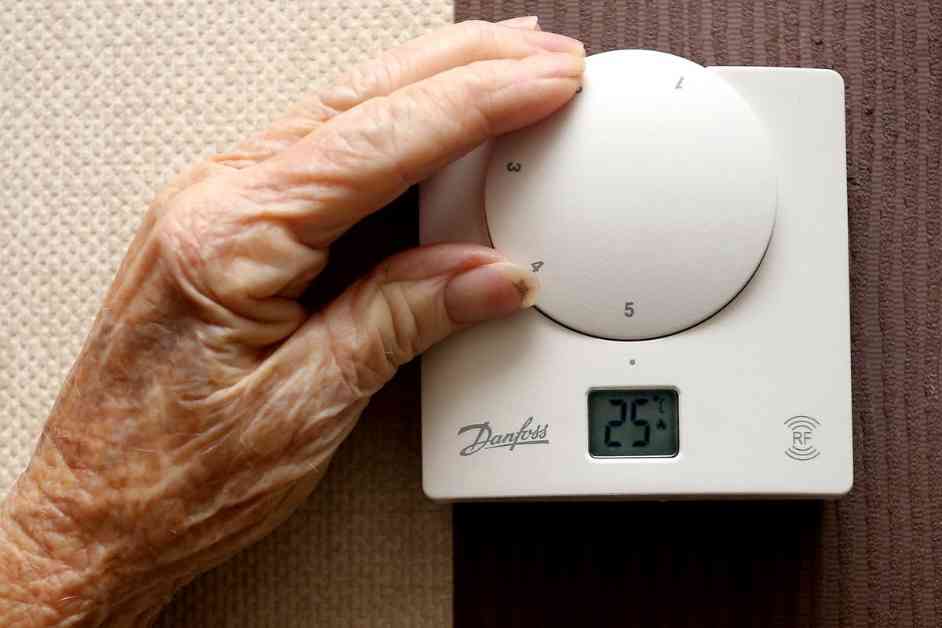Ed Davey Criticizes Labour Government’s Decision on Winter Benefit
Sir Ed Davey, leader of the Liberal Democrats, has taken a strong stance against the Labour Government’s decision to end the winter fuel allowance for all pensioners. He has warned that this move is the government’s “first big mistake” and has pledged to try and block it when MPs return from their summer recess next week. Davey’s criticism comes amidst growing concerns about the impact of the decision on vulnerable pensioners across the country.
Lib Dems Vow to Take Action
Sir Ed Davey’s announcement that the Liberal Democrats will seek to block the Government’s plan to end the winter fuel allowance has sparked a heated debate in Parliament. The proposed change, which would limit the payment to pensioners on income-related benefits or tax credits, has faced backlash from opposition parties and advocacy groups alike. Davey’s call for action highlights the growing concern over the impact of this decision on the most vulnerable members of society.
Rishi Sunak, Chancellor of the Exchequer, has also thrown his support behind proposals for a Commons vote on the winter fuel payment. This move has further escalated tensions within Parliament, with MPs on both sides of the aisle divided over the issue. The upcoming vote is expected to be a contentious one, as politicians grapple with the competing demands of fiscal responsibility and social welfare.
Chancellor Defends Decision Amidst Criticism
Chancellor Rachel Reeves has defended the decision to limit the winter fuel allowance, citing a £22 billion “black hole” in the government’s finances inherited from the previous administration. Reeves emphasized the need to put the country’s public finances on a firm footing, even in the face of difficult circumstances. The Chancellor’s decision has drawn criticism from opposition parties, who argue that the burden of austerity should not fall on the most vulnerable members of society.
In a statement on Wednesday, Reeves acknowledged the challenging nature of the decision, stating, “It’s not a decision I wanted to make. It was a decision that I had to make in incredibly challenging circumstances to put our public finances on a firm footing.” The Chancellor’s remarks reflect the delicate balance that policymakers must strike between economic prudence and social welfare.
Sir Ed Davey has called on the Labour Government to reconsider its decision and explore alternative solutions to address the country’s financial challenges. He has urged the government to consider taxing the wealthiest individuals in society to fund investments in public services, rather than cutting essential benefits for vulnerable pensioners. The Liberal Democrat leader’s comments underscore the deep divisions within Parliament over how best to navigate the country’s economic recovery.
Age UK Opposes Means-Testing
The charity Age UK has strongly opposed the government’s decision to means-test the winter fuel payment, warning that as many as two million pensioners could be left without crucial financial support. The organization has raised concerns about the impact of the decision on the most vulnerable members of society, particularly in light of rising energy costs and the upcoming winter months. Age UK’s stance reflects the broader opposition to the government’s austerity measures and the growing calls for a more equitable approach to public policy.
In response to the criticism, Labour’s energy consumers minister Miatta Fahnbulleh has emphasized the government’s commitment to supporting vulnerable households with their energy bills this winter. Fahnbulleh has pledged to work with energy industry leaders to raise awareness about the financial assistance available to customers in need. The government’s efforts to address the challenges facing vulnerable households reflect a broader commitment to social welfare and economic justice.
At a roundtable with energy industry bosses, Fahnbulleh reiterated the government’s commitment to providing winter support to families in need. She stated, “Despite the tough inheritance, we will do everything in our power to support vulnerable households with their energy bills this winter.” The minister’s remarks highlight the government’s efforts to prioritize the needs of vulnerable communities and ensure that they receive the support they require during the colder months.
In conclusion, the debate over the government’s decision to end the winter fuel allowance for all pensioners reflects the broader tensions within Parliament over how best to address the country’s financial challenges. The upcoming Commons vote on the issue is expected to be a contentious one, as MPs grapple with competing demands for fiscal responsibility and social welfare. The outcome of the vote will have far-reaching implications for vulnerable pensioners and the broader public, underscoring the need for a balanced approach to economic policy and social welfare.












